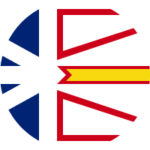Health and travel insurance provide international students and their families with peace of mind. However, international students are eligible for different kinds of insurance, depending on where they plan to study in Canada. In some cases, international students can access public healthcare, where in others, they may have to purchase private health care coverage from an independent provider or through their academic institution. Below, we’ll explore the difference between health and travel insurance, and take a look at which health insurance options are available in each Canadian province and territory.
Note: While this information is current as of February 2026, the legislation guiding insurance, as well as individual policy coverage, is subject to change. Always check official government sources and insurance company pages for the most up-to-date information.

Travel Insurance vs Health Insurance
As an international student, you must have valid health insurance coverage for your entire stay in Canada. How health insurance works and what it covers varies across the country.
Meanwhile, travel insurance is optional. It protects you while travelling to and from Canada, and can help if your luggage is lost or your flight is delayed. Check with your airline or insurance providers in your home country to see what travel insurance plans they offer. Some credit cards offer travel insurance as a perk, so check your card benefits too!
Moving to a new country can feel like a lot, but you don’t have to do it alone. Find secure and pre-vetted student housing in over 600 cities around the world with our partner University Living.
Health Insurance Options Across Canada

Alberta
If you have a 12-month study permit for an academic institution in Alberta and plan to live there for 12 months or more, you’re eligible to apply for the Alberta Health Care Insurance Plan (AHCIP).
Students with a study permit which is valid for less than 12 months may be eligible for AHCIP if their application includes a letter from their academic institution confirming their enrolment and the student’s intention to live in Alberta for at least 12 months.
Note that AHCIP is only valid for students living and studying at an Albertan academic institution. If you move out of the province or are studying at an institution in another province, you must contact AHCIP to have your coverage cancelled.
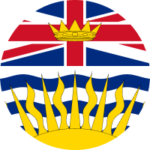
British Columbia
International students who live in British Columbia (BC) for at least six months in a calendar year are eligible for BC’s Medical Services Plan (MSP).
As an incoming international student, you must apply for MSP as soon as you arrive in BC. In order to access MSP, you must pay a monthly International Student Health Fee. MSP applications take around three months to process, but the iMED plan supplies international students with basic health insurance during this interim period.
Students who aren’t eligible for MSP must purchase private health care coverage after iMED expires. Many academic institutions offer extended health insurance options.
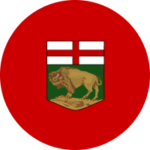
Manitoba
International students studying in Manitoba on a valid study permit must purchase private health insurance through their educational institution or a private insurance company. However, if an international student or their spouse holds a Canadian work permit, such as a co-op, work permit, or post-graduation work permit, they may be eligible for provincial health care in Manitoba.
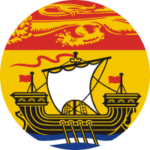
New Brunswick
To receive New Brunswick Medicare, international students must have a study permit valid for at least 12 months and proof of full-time registration at a university or college. However, New Brunswick Medicare provides basic medical coverage, so obtaining extended health coverage with a private provider or your academic institution is recommended.
Newfoundland and Labrador
Once registered, all international students are automatically admitted to the Foreign Health Insurance Plan. International students enrolled in full-time studies for at least 12 months may access free basic health coverage through Newfoundland’s Medical Care Plan (MCP). If you’re not eligible for the MCP, you must purchase private health coverage. As MCP provides only basic coverage, all international students are urged to consider extended health insurance plans.
Northwest Territories
International students planning to study in the Northwest Territories may apply for NWT health care (NWTHC) coverage through the territorial government’s Health Services Administration Office (part of the Department of Health and Social Services). Students will need a copy of their study permit and confirmation of their enrolment in an academic institution in the Northwest Territories. NWTHC doesn’t cover extended benefits like eyeglasses, dental care, or prescription medications, so it could be wise to purchase a private insurance plan to cover these services.
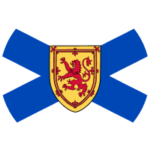
Nova Scotia
In Nova Scotia (NS), you must purchase health insurance for your first year of studies, as international students aren’t immediately eligible for the provincial health care program. Your institution may offer health care plans, and some will require enrolment in their plan when you start your studies.
Public health insurance becomes available to international students after living in Nova Scotia for 12 months through Medical Services Insurance (MSI). Once you’re eligible, you’ll need to apply for a Nova Scotia Health Card, which you’ll use to access care. Once you have MSI, you may opt out of the private health insurance plan.

Nunavut
Nunavut isn’t home to any designated learning institutions (DLIs) yet, which means that international students cannot study there.
If you’re exploring multiple study destinations, learn how international students can get health and travel insurance in Australia, the United Kingdom, and the United States.
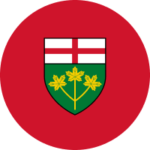
Ontario
International students aren’t eligible for the Ontario Health Insurance Plan (OHIP). As a result, every academic institution in Ontario provides health insurance for students to purchase. Public universities usually provide health insurance through the University Health Insurance Plan (UHIP). Colleges and private institutions in Ontario offer plans from various providers.
Note: When you’re planning your study abroad budget, remember that health insurance offered through academic institutions isn’t free, and their cost is often added to international tuition fees.
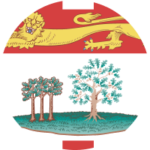
Prince Edward Island
If you’re planning to study and live in Prince Edward Island (PEI) for at least six months plus a day, and are legally able to work off-campus, you may apply for public health insurance. You may apply for a provincial health card as soon as you arrive in PEI.
To find a family doctor or nurse practitioner, you’ll need to add your name to the Provincial Patient Registry separately.

Quebec
Quebec has a reciprocal agreement that allows citizens from 11 other countries to access free basic health insurance through Quebec’s Régie de l’assurance maladie du Québec (RAMQ). As of 2026, eligible countries are:
- Belgium
- Denmark
- Finland
- France
- Greece
- Luxembourg
- Norway
- Portugal
- Romania
- Serbia
- Sweden
To ensure you’re covered as soon as you arrive, ensure you request a certificate of coverage from the organization responsible for social security in your country of residence. Then, after arriving, file your application with the Quebec Health Insurance Plan (any documents not in French or English will need to be translated).
If you’re not from one of those 11 countries, don’t worry! While you’re not eligible for public health insurance, most academic institutions in Quebec will automatically enrol international students in their group health insurance plan, and add the cost to your tuition fees.

Saskatchewan
International students who can prove full-time enrolment at an accredited academic institution in Saskatchewan may register for a Saskatchewan Health Card, which provides free basic health coverage. Students will become eligible for health coverage on the first day of the third month after they arrive in Canada. So, it’s important to have private health insurance to cover your first two months in Canada.

Yukon
International students cannot apply to the Yukon Health Insurance Plan. They must purchase private health insurance to cover these costs during their studies.
Now that you’ve learned more about Canadian health and travel insurance, take the next step. Check out study abroad programs in Canada on the ApplyBoard platform!

